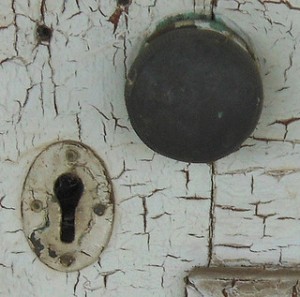
Creative Commons photo by Michael Coghlan
Matt Lawson is a final year funded PhD candidate in film musicology. His thesis is entitled ‘Scoring the Holocaust: a comparative, theoretical analysis of the function of film music in German Holocaust cinema’. You can find out more about Matt at his website: www.themusicologist.co.uk, and follow him on Twitter @MattLawsonPhD. His mid-point AcWriMo reflection follows below.
So – half way through. How are things going? Well, this weekend (Saturday 15th/Sunday 16th) is one I have designated as a weekend off. I will be watching Germany score many goals past Gibraltar in Nuremberg on Friday evening, and then allowing myself a little sightseeing and relaxing on the Saturday and Sunday.
‘What about the PhD?’, I hear you ask. Well, it’s going satisfactorily well! I know that doesn’t sound like I’m dancing around the Alpine lodge in excitement, but I’m content with my progress. Let’s do some number crunching. I arrived in Germany with 57,096 words, and as I go into my free weekend, that has blossomed to 65,281. I’ve worked on ten of the eleven days up from my arrival on 2nd November up to and including Wednesday 12th November, giving me an average of 818 words per day. That’s good going. I was aiming for 1,000, but with my thesis being in a fairly ‘completed’ state, that would perhaps be overdoing it. My realistic aim now is to head back to England with my thesis anywhere in the 70-80,000 range. Whether that is 70,001 or 80,000 remains to be seen, but I’ll be delighted with anything in between. That will give me three weeks before Christmas to edit what I’ve written, print, bind and hand in a full first draft.
What I would also like to mention in this instalment is how I have kept myself sane while I have been here. As mentioned in the previous post, isolation and loneliness are two of the down sides to a doctoral programme which have affected me deeply over the past year or so. I won’t lie: there have been evenings where I have felt these keenly since the beginning of the month, but I have coping mechanisms. One of these, which can only be good news for my mental AND physical health, is to walk ridiculous amounts during daylight hours, and work at night. It seems such a shame not to experience the country I have so kindly been given access to by my funding body, and with the sun going down at around 4:30pm, it seems counterproductive to sit inside pretending to write my thesis while I looking out of the window at the blue skies. I have clocked up countless miles up mountains, down valleys, around lakes and so forth, and have been back in my accommodation by 4:30pm each day to commence 4-5 hours of writing once it’s dark. It’s worked a treat, and my productivity is helped by the fact that for some of the walk, I’m planning what to write when I return!
This weekend off will give me a good chance to try and forget about the PhD (ha!), and clear my mind before the start of the next working week. To be honest, I’d quite like some horrible weather, because then it’d force me to some extent to stay inside and get lots done. At the same time, given what I’ve mentioned above, getting out and about is important. A PhD sometimes causes us to lose touch of reality somewhat, and there’s nothing that screams reality like being up a 6,000ft mountain wondering how you’re going to get down!
Half way through, and my report would read ‘satisfactory progress, but could do better’. Without putting too much pressure on myself, I’m hoping for a decent next couple of weeks to return to England knowing I’ve done everything I could have done to give me the best possible chance of handing a first draft in that I’m both happy and proud of.
‘Write like there’s no December’, is one quote I’ve seen banded around with regards to #AcWriMo. I like that a lot. However, I know that there’ll be a December, and that feeds my Alpine procrastination somewhat…
 Exhale. For many readers in the Northern spheres, it’s the season for Spring Break. While a good number of students use the week off for time at the beach, the park, or other leisure activities, faculty might use the week to catch up on projects, cram to meet deadlines, or take care of outstanding teaching responsibilities. If you have time off, make sure you take time to exhale. Take a deep breath, put up your feet, sleep in an extra hour. Relaxation can be a prime remedy for preventing burnout.
Exhale. For many readers in the Northern spheres, it’s the season for Spring Break. While a good number of students use the week off for time at the beach, the park, or other leisure activities, faculty might use the week to catch up on projects, cram to meet deadlines, or take care of outstanding teaching responsibilities. If you have time off, make sure you take time to exhale. Take a deep breath, put up your feet, sleep in an extra hour. Relaxation can be a prime remedy for preventing burnout.









 Creative Commons photo by Michael Coghlan
Creative Commons photo by Michael Coghlan 

 ‘Floating away — Peace Pig 260’ by https://www.flickr.com/photos/sidonath/
‘Floating away — Peace Pig 260’ by https://www.flickr.com/photos/sidonath/ 
 By the Next 28 Days: https://www.flickr.com/photos/thenext28days/
By the Next 28 Days: https://www.flickr.com/photos/thenext28days/ 
